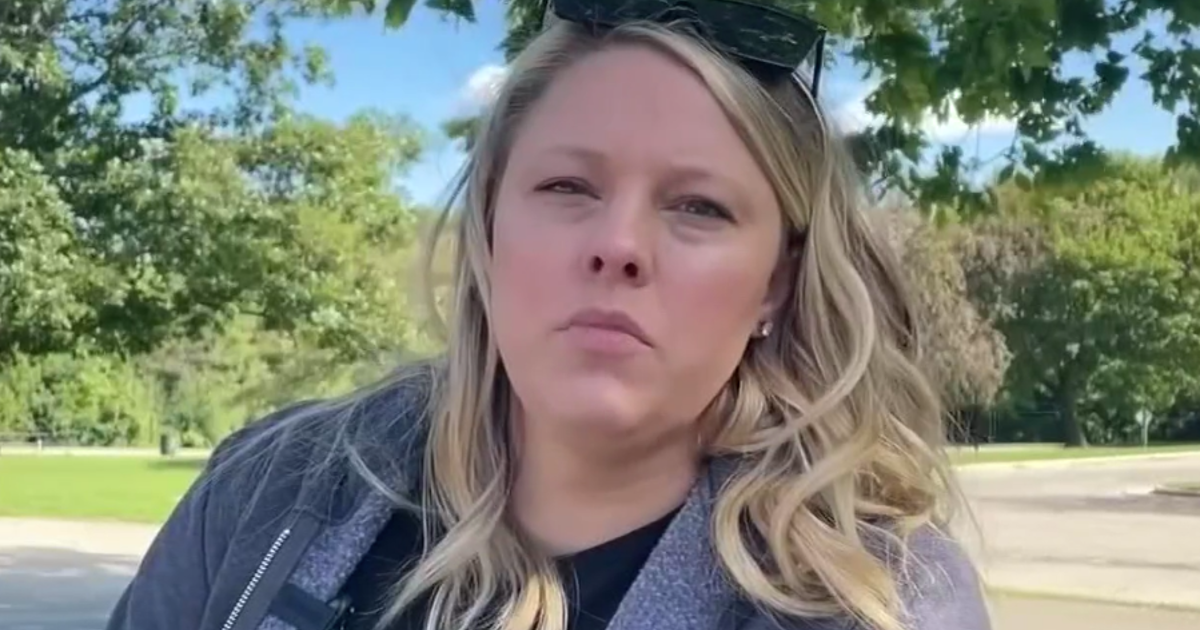Pushing For Early Detection
- Ashley Fenderson, a board member of the Wisconsin Ovarian Cancer Alliance, is spreading awareness for early cancer detection after years of dismissing her symptoms.
- Fenderson was diagnosed with ovarian cancer at 29 years old after having ‘pain for years.’
- Ovarian cancer also tends to be diagnosed in older women; roughly half are diagnosed when they are over the age of 60.
- Since there is no screening test for ovarian cancer so far, only about 20% of cases are diagnosed in the early stages, according to the American Cancer Society.
Now, the mom is spreading awareness for early cancer detection after years of dismissing her symptoms.
Read More
Fenderson noted that her daughter reminds her daily that the pair “beat cancer together.”
The Wisconsin Ovarian Cancer Alliance’s executive director, Ashleigh Schneider, spoke more in-depth to the news outlet about the group’s mission.
"We like to spread the mission of the signs and symptoms which we categorize as the BEAT,” Schneider explained. “Bloating, eating difficulty, abdominal pain, then trouble with your bladder. Urgency or frequency."
Referring to Fenderson, who was diagnosed with ovarian cancer before 30, Schneider says she was “very lucky.”
“She was caught at an early stage. If you're diagnosed at an early stage, your five-year survival rate is beyond 90%, which is amazing. If you're diagnosed at a later stage, the 5 year survival rate is less than 50%,” Schneider added.
Schneider explained that ovarian cancer diagnoses are usual for women between the ages of 65 and 72.
Learning About Ovarian Cancer
With ovarian cancer, chemotherapy is usually the first stage of treatment, but as far as staging your actual cancer? It's a little more difficult to tell until your doctor performs a surgery.
Related: Teacher And Mom Of Two, 48, Thought Her 'Painful Periods' Were Menopause: It Turned Out To Be Cancer
For ovarian cancer, gynecologic oncologists recommend a staging procedure after a diagnosis when they have evidence that the cancer may be early or limited, which has to do with the location of the tumor. Based on where the cancer is found, it will be assigned a stage.
How Do I Know The Stage of My Ovarian Cancer? Staging Surgery Determines Spread
We spoke with Dr. Amanda Fader, who further describes the notion of staging your ovarian cancer through surgery, that determines what, if any, cancer has spread.
"If it's remained in the ovary where it was initially found or developed, then the cancer is Stage 1," says Dr. Amanda Fader, vice chair of gynecologic surgical operations at Johns Hopkins University in Baltimore, tells SurvivorNet.
"But if the cancer has started to spread to other organs or through the lymph nodes to other parts of the body, then it would be identified as Stage 2, 3, or 4," Dr. Fader adds.
The Stages of Ovarian Cancer
- Stage 1: The cancer is confined to the ovaries or fallopian tubes
- Stage 2: The tumor involves one or both ovaries with extension to other pelvic tissues (or is a primary peritoneal cancer)
- Stage 3: The cancer has spread outside of the pelvic peritoneum including to the outside of the bowel, liver and spleen and/or it involves the lymph nodes
- Stage 4: There are distant metastases (outside of the pelvis and abdomen) or metastases to the inside of the spleen or liver
When doctors have evidence before the surgery, such as from imaging tests, that the tumor may be limited to the ovary, they will usually recommend a staging procedure. During that operation, doctors remove all or part of the ovary with the tumor and send itwhile the patient is still asleep on the operating tableto a pathologist who will examine the tissue and identify the type of tumor so doctors can decide how best to treat it.
If the tumor is determined to be benign, the surgery can end. Otherwise, more extensive surgery is usually performed. Prior to the surgery the patient and her doctor would have discussed the various possible findings, so that depending on the result of the ovarian biopsy, the surgeon knows what the patient's wishes are and how to proceed. "We would have made these decisions ahead of time through our preoperative counseling," explains Dr. Fader.
If the tumor is malignantovarian cancer"then we usually do a hysterectomy and remove the opposite ovary, too, in case it's involved with the cancer. We also remove the omentuman apron of fat in the abdomen. It has no known function, like the appendix, but can be involved in many ovarian cancer cases. And we'll do several biopsies around the abdomen and pelvis, including biopsies of the lymph nodes and peritoneum (the tissue lining of the abdomen)."
These biopsies will determine whether the cancer has spread and if so, how far.
Ovarian Cancer: Difficult to Diagnose
Ovarian cancer is often referred to as the "cancer that whispers," according to Dr. Beth Karlan, Director of the Women's Cancer Program at the Cedars-Sinai Medical Center.
Ovarian Cancer: The Cancer That Whispers
It has symptoms that are very vague and are often similar to the symptoms many women experience every month with their menstrual cycle. However, if you are experiencing any of the following symptoms, and they seem to be "crescendoing," or getting worse, it is worth it to see a doctor to rule out ovarian cancer:
- Feeling full earlier/decrease in appetite
- Feeling bloated
- Changes in bowel habits
- Pain in the pelvis
- Urinary symptoms, such as an urgent need to go
- Extreme fatigue
- Abdominal swelling
- Pain during sex
It's hard to connect these symptoms specifically with the ovaries because they could be caused by a whole host of other issues. That's why Dr. Karlan, as well as many other top gynecologic oncologists in the U.S., highly suggest women be vigilant about getting tested if they feel that something is amiss with their bodies.
Because many of these symptoms are associated with women's menstrual cycles, this may mean being insistent with doctors who may want to write off symptoms.
Ovarian cancer also tends to be diagnosed in older women; roughly half are diagnosed when they are over the age of 60. Because of this, many doctors will write off symptoms as signs of menopause. Since there is no screening test for ovarian cancer so far, only about 20% of cases are diagnosed in the early stages, according to the American Cancer Society.
Contributing: SurvivorNet Staff
Learn more about SurvivorNet's rigorous medical review process.


